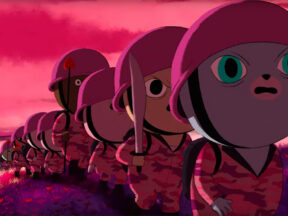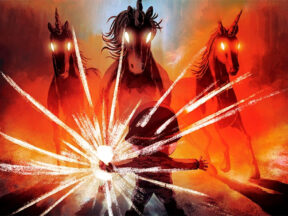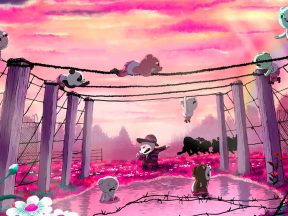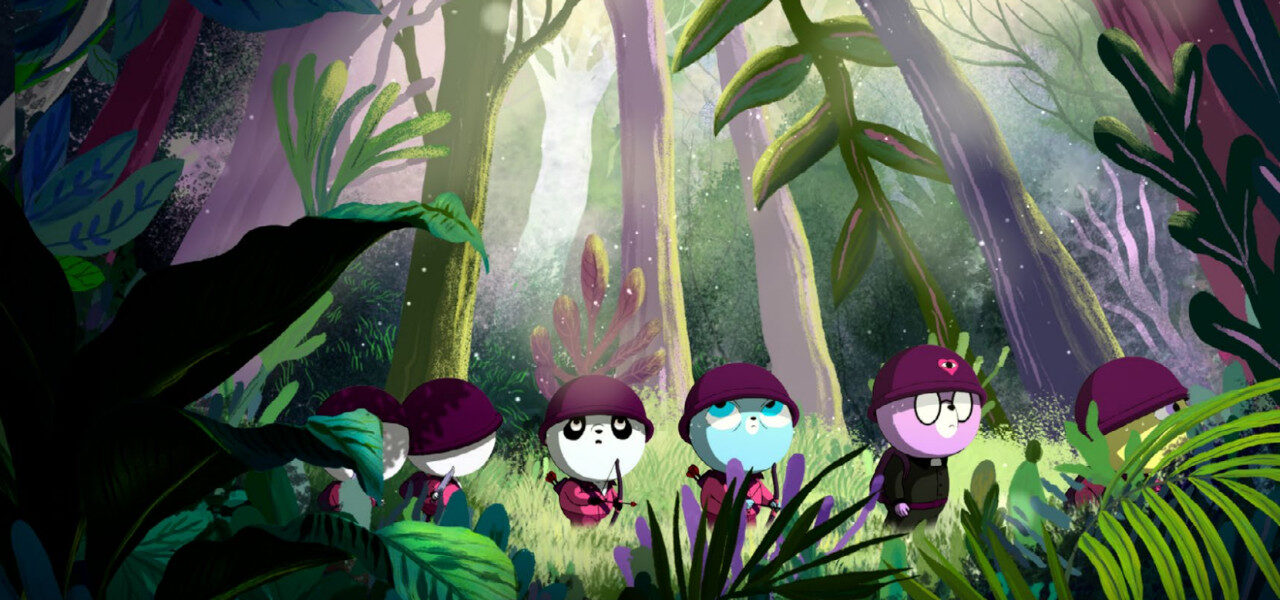
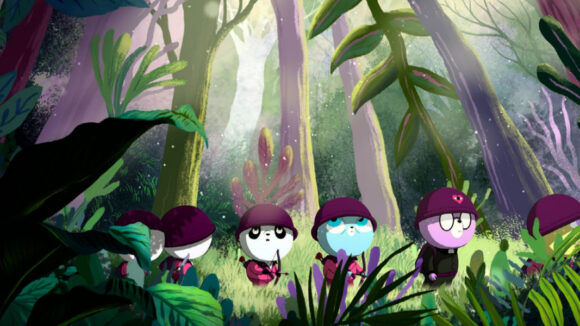
How ‘Bambi,’ ‘Apocalypse Now,’ And The Bible Blend In Alberto Vázquez’s ‘Unicorn Wars’
Annecy Cristal-winning filmmaker Alberto Vázquez (Birdboy: The Forgotten Children, Homeless Home) is back at the French festival this year with his latest feature Unicorn Wars.
Given the filmmaker’s profile and a hugely popular 2021 Annecy work-in-progress presentation, Unicorn Wars stands out as one of this year’s most anticipated competition premieres. The film is a psychedelic anti-war allegory which unspools in the middle of a religiously-fueled battle between cuddly colorful bears and shadowy unicorns. It’s as funny as it is morbid, and feels very much like an Alberto Vázquez film. In fact, it plays almost like a thematic prequel to his short Homeless Home, about a soldier returning from war, which won the jury award at last year’s Annecy.
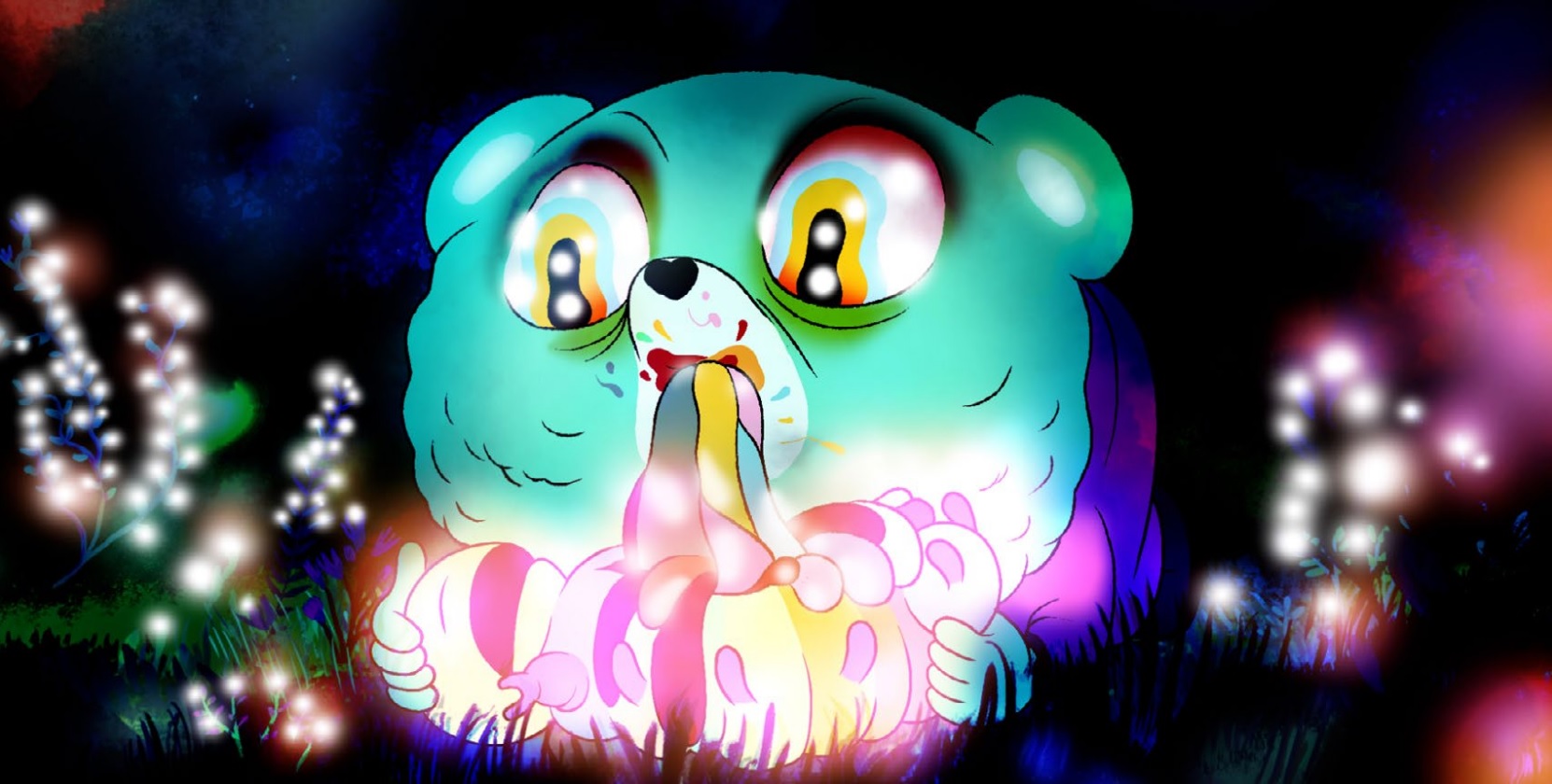
Vázquez wrote and directed Unicorn Wars, which was executive produced by Chelo Loureiro, Iván Miñambres, and Nicolas Schmerkin. Khris Cembe oversaw animation direction with Vázquez handling artistic direction. Leire Acha was background supervisor, Martín Romero lighting supervisor, and Joseba Hernández compositing supervisor. 2d animation was supervised by Elsa Boyer and Chloé Roux, with 3d animation overseen by Léo Silly-Pelissier. Arkaitz del Río supervised ink and paint.
The filmmaker spoke with Cartoon Brew about the film’s main influences, how his work has advanced over the years, and if a return to comics is in his future.
Cartoon Brew: With Bird Boy and now Unicorn Wars, you’ve nailed down the comic-to-short-to-feature path. How was the development and production of Unicorn Wars similar or different from your experience with Bird Boy?

Alberto Vázquez: With Bird Boy, the idea was always to make a feature film, but we knew it would be very difficult. So at that time, Pedro Rivero and I first made a short film thinking, “Well, if we don’t get to make the movie, at least we have this short.” With Unicorn Wars, the truth is that I never really thought about making a feature film. I don’t think shorts need to be a step towards making a feature. So, in 2012 I made the short film Unicorn Blood with no real expectations. It was done with a very small team using pencil and paper. In 2017, I was thinking about doing another feature and kept coming back to that short and how I’d like to expand on its themes and characters. The idea was to bring the fantasy universe I’d created together into a war story full of mythology and religion. That’s why I describe it as Bambi meets Apocalypse Now meets the Bible.
How did having a bigger crew and a bigger budget affect your work?
On Bird Boy we were a small team of 20-25 people, and only in Coruña [Spain]. On this film, I kept the base of the team together, many of the same animators, but this was a co-production between Galicia, the Basque Country, and France. So we were working with our studio in Coruña, another in the Basque Country, two in France, and some freelancers across Spain in places like Extremadura, Barcelona, and Madrid. Because this film had a bigger budget, we were able to work with more people at the same time. In that sense, this production was a big step forward for me because it was much more complex than what I’ve done in the past. On a technical level, it was more complicated because this film has many, many more characters, there are huge battle scenes, and sometimes as many as 25 unicorns in the composition. And, of course, we did a lot of this during the pandemic.
As you said earlier, with this film you’ve made a few stylistic departures from your previous work, adding more color, 3d animation, etc. Can you talk a bit more about those changes, and the reasons for making them?
I wanted to represent the unicorns in a more graphic way. I wanted them to be a silhouette, and to provide a contrast to the bright, colorful bears. On the surface, the bears are very pretty, brightly colored, and speak sweetly. But on the other hand, their behavior is quite cruel and violent so the unicorns see them as demons. I wanted something that would contrast the bears, so I thought of representing the unicorns in a silhouette; I was thinking of the films of Lotte Reiniger. Additionally, the unicorns were made in 3d. When we were planning the film, we thought about animating 40 unicorns running towards the camera and decided it would be best to do them in 3d. That created another strong contrast to the bears, and I think in the end the styles integrated quite well.
This film feels, from the first frame to the last, completely like an Alberto Vazquez film, but it also feels more accessible to a wider audience than some of your previous work. What kind of audiences do you think will enjoy Unicorn Wars?
I think this film has a rhythm and a feel that can reach a larger audience than my previous films, perhaps. This film has a more linear story and is more fast paced than Bird Boy, and it’s more colorful with more attractive characters. I think that fans of animation and fans of auteur cinema will enjoy this film, but also people who like war films in general. I also think this film has, unfortunately, a more universal message these days. When I started on this idea six years ago, I never imagined we’d have a conflict like the one we’re seeing in Europe right now. In the end, this film is an anti-war fable.
And what’s next? Do you need to make a new comic book to start the process all over?
No, no. I think that now I am completely invested in making animated films. I still love comics. It’s a wonderful medium and I’ll always be thankful that I made my comics, but right now I’m focused on animation. Being able to make animated feature films is incredible and I’m so lucky to be able to make the unique kinds of films that I do. Unicorn Wars is not a typical animated film – it’s authorial, it has a specific and personal point of view, and I’m so proud of being able to work like that and so thankful for my producers who have supported me with this project.
This interview was conducted in Spanish and transcribed to English. “Unicorn Wars” is produced by Uniko and Abano Producións in Spain and with Autour de Minuit and Schmuby-Borderline Films in France. Charades handles sales.

